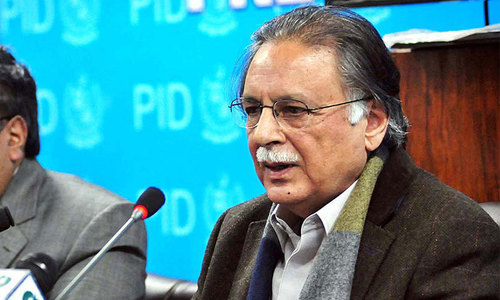ISLAMABAD: After completing a hectic schedule of both houses of parliament during which the National Assembly and Senate remained in session for almost two months, the two houses are now set to have another busy week commencing from Wednesday (tomorrow) where Kashmir and FATF-related legislation will come up for discussion.
As the National Assembly is scheduled to resume its session on Aug 7 and the Senate is meeting on Wednesday (tomorrow), President Arif Alvi on Monday convened a joint sitting of parliament on Thursday to take up nearly a dozen legislations, including those required to be passed to fulfil some of the conditions of the Financial Action Task Force (FATF) against terrorism and the bills which had been passed by one house but could not get through the other house within the constitutional time frame of 90 days.
Special Senate session on Kashmir tomorrow
Talking to Dawn on Monday, Adviser to the Prime Minister on Parliamentary Affairs Dr Babar Awan said the main focus of the joint sitting would be on passing the FATF-related bills and some other legislations of national significance.
He said the joint sitting had been planned for one day, but it could be extended, if needed, till the passage of all FATF-related and other important legislations.
Dr Awan said a special session of the Senate had been called on Wednesday on the occasion of the first anniversary of the unilateral and illegal act of India to annex occupied Kashmir. He said the main purpose of the Senate session was “to send a national call and cry to the rest of the world and the institutions” over the situation in the Indian occupied Kashmir which had been under lockdown for one year and where people had been facing atrocities by the occupation forces.
Dr Awan said when he took charge of the parliamentary affairs ministry there was a “constitutional chaos” in the country as the National Assembly was far short of meeting the constitutional requirement of remaining in session for 130 days in a parliamentary year, which is about to end on Aug 13. He said it was after a regressive two-month-long session that they were now able to complete the number of days. He said the assembly was still short of seven days, which it would complete next week.
The government, which had successfully managed to get the two FATF-related bills passed from the two houses of parliament last week after hectic engagements with the opposition and accommodating some of their minor amendments, is again hopeful that it will succeed in getting the remaining FATF-related bills passed in the upcoming joint session despite the fact that the opposition has a slight edge over the government in terms of the number of seats in the two houses of parliament, if they meet together.
“I hope that everybody from the treasury and the opposition will play his or her national role and the FATF-related bills and other legislations of national significance will easily be carried through the joint session of parliament,” Dr Awan said.
He said the government had no “political motives” and would not back out from its “national agenda” of getting Pakistan out of FATF’s grey list.
A special committee of parliament, constituted by National Assembly Speaker Asad Qaiser last month to discuss the pending legislations, has already become dysfunctional when the opposition members boycotted its proceedings due to differences with the government over the FATF bills and the draft of the National Accountability Ordinance (NAO) amendment bill.
Foreign Minister Shah Mehmood Qureshi, who was heading the parliamentary committee, categorically announced that a majority of the proposals jointly made by the Pakistan Peoples Party (PPP) and the Pakistan Muslim League-Nawaz (PML-N) regarding changes in the accountability laws were not acceptable to the ruling Pakistan Tehreek-i-Insaf (PTI).
Published in Dawn, August 4th, 2020














































